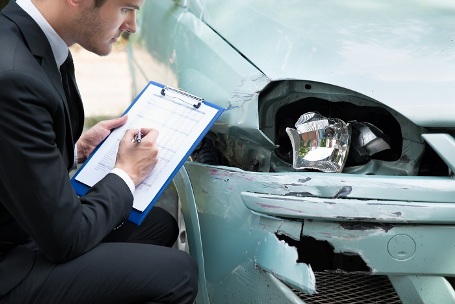What should I do if I need to file an accident claim?
Accidents can happen at any time, but the handling of the legal aspects of a claim for personal injury can be a challenge. Accidents can be of many types, including car accidents, slip and falls, or for any defective product.
Fortunately, there are several steps that can be taken after an accident and help prepare for filing a claim or a lawsuit. Here is a list of top nine tips for accident claims:
1) Seek medical attention immediately
If you have been seriously injured, the first thing to do is get medical care. Do not attempt to handle any demand before having properly treated wounds with a medical professional.
You should note that failure to seek medical care after an accident can sometimes reduce the amount of damages that are able to recover. As the injured party, you may have a duty to “mitigate their losses”. This means that you should take steps to ensure that the injury does not cause more health complications or economic losses.
2) Present a legal complaint
Filing a complaint with the police can help ensure that you have records important information. This may include the names and information from other people who were involved. In addition, the complaint itself can serve as a record of important events that happened in the accident. The complaint to the police can be used in court if there is a demand
3) Be aware of what he says on the scene
It is necessary to communicate with the other party after the accident, however it should have discretion when talking with other people because you have no legal obligation, but if who has took the blame for the accident must provide any additional information that is required. Avoid making statements that could make the situation more complicated, and avoid unnecessary conflicts in the situation.
4) Keep an accurate record of all costs and expenses related to the accident
These may include hospital bills, medical diagnostic statements, invoices related to property damage, and records of payments to insurance. You may also need to have the records of the wages which were not perceived if the accident has caused you to miss work. As it is a good idea to make a written account of the accident specially while events and facts are still fresh in your memory.
5) Be careful when dealing with insurance companies
The participation of insurance companies can sometimes make the legal process more complicated in a complaint by accident. However, in most cases, if you work with an insurance company you will need to complete your complaint by accident or claim. Be sure to protect their interests in negotiating with an insurance company. It may be useful to have an attorney at your disposal for advice when it comes to third parties.
6) Do not sign any forms or documents without understanding
Make sure you fully understand the terms of any form and documents to be filled in relation to the accident. Do not sign any form, if you are not sure how it will affect in the long run. This includes any form that may present long after you have passed the accident. Take special care with documents or contracts that ask you to release the other party of responsibility, or that require you to waive your right to a trial.
7) Avoid trying to solve on your own if you do not understand what to do
Trying to resolve on your own with the other party or with your insurance company can sometimes be a complicated process. If you are unsure of what you are doing, it is best to find some help through the advice of a legal expert. This is especially important if the other party will be hiring a lawyer. Working with your own lawyer can help you avoid costly mistakes that can have negative effects on your claim.
8) Be aware of the time of filing the complaint
Make sure you submit your legal claim or demand in a timely manner. For most accident claims, you only have a certain time after the accident to file a complaint with the courts. This is known as the “statute of limitations”, which can vary by state and type of accident in question. Once the statute of limitations has expired, you may no longer file your claim.
9) Make a preliminary investigation into the legal process
It may be worth your time to become familiar with the basics of accident claims in your area. Local regulations may vary, and demands may take some time to reach a final decision. While do not expect to become an expert, but speaking with a lawyer of some basic guidelines can help clarify confusion outside the process.
